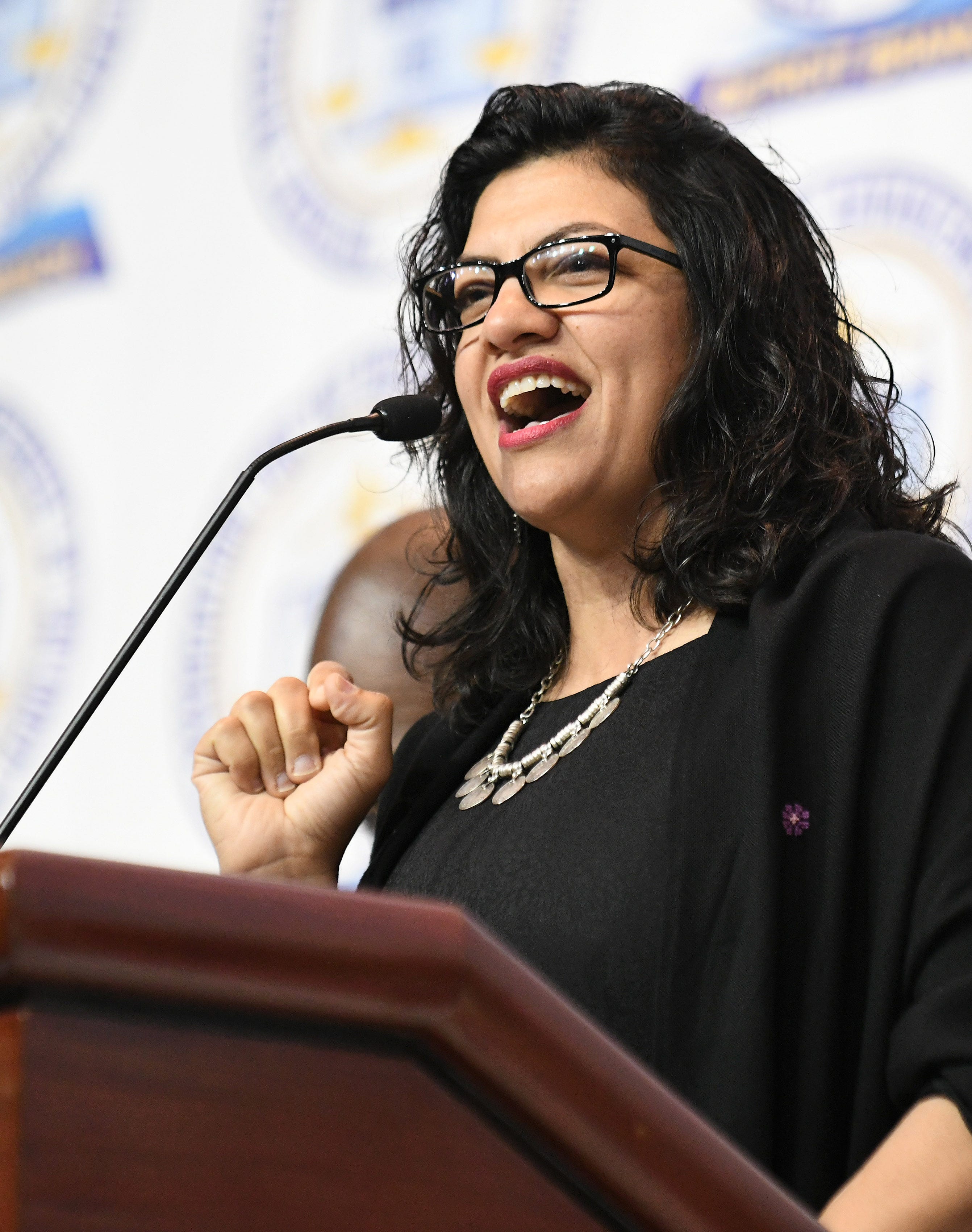Finley: Tlaib not anti-Semitic, but she is wrong
 Nolan Finley
Nolan Finley
It's not often I rise in defense of U.S. Rep. Rashida Tlaib. The Detroit Democrat who entered Congress in January and quickly became part of the daily news cycle for her reckless comments deserves most of the criticism that comes her way.
But the latest round of conservative condemnation of Tlaib isn't entirely merited.
The Detroit congresswoman is under attack for offering this opinion during a Yahoo News podcast last week:
"There’s, you know, there’s a kind of a calming feeling, I always tell folks, when I think of the Holocaust and the tragedy of the Holocaust, and the fact that it was my ancestors — Palestinians — who lost their land and some lost their lives, their livelihood, their human dignity, their existence, in many ways, had been wiped out. ... I mean, just all of it was in the name of trying to create a safe haven for Jews, post-the Holocaust, post-the tragedy and the horrific persecution of Jews across the world at that time.”
As bad as the first part of that statement sounds, I don't believe Tlaib feels "calmed" by the thought of six million murdered Jews. What she's saying, on my read, is that Palestinians paid a heavy price for the Jewish state, and their suffering shouldn't be forgotten.
As the nation's first female Palestinian-American congress member, Tlaib's perspective is understandable, and represents the beliefs of many in her district, which has a sizable Arab and Muslim population.
The reason we have 435 representatives in Congress is to give the body broadly diverse viewpoints.
I also don't believe that all criticism of Israel stems from anti-Semitism. It's possible to disagree with Israeli policies and not hate Jews.
And while Tlaib's comments are a distortion of history — Jews were well established in what is now Israel before the Holocaust and World War II and had done much to modernize the region; it was their home, too — that's also immaterial.
What presents the real danger to Israeli Jews is not Tlaib's comments, but her policies.
Later in the podcast the congresswoman advocates for a single-state solution, rather than the two-state outcome — one Jewish, one Palestinian — that's long been the strategy supported by the United States.
Combining all of Israel and the Palestinian territories into one nation would destroy the Jewish state by demographics, particularly if it also provides for a right of return for those Arabs who left Israel during the wars of 1948 and 1967.
A combined state would guarantee an Arab majority, meaning Jews would lose control of the only country they govern.
While Tlaib envisions a single state where everyone lives in "love, equality and justice," that's not the history of the region.
Throughout the 20th century, Jews were expelled from countries across the Middle East, or were so persecuted they had to leave. "Death to Israel" is still bellowed from atop minarets across the Muslim world.
There's no reason for Jews to believe they'd be safe in Israel as an Arab-controlled state. Israel will never make that concession in the name of peace. But as long as the Palestinians are encouraged to believe such a result is possible, the path to peace is more difficult.
Rather than silencing Tlaib, her views should open a useful conversation on the folly of pushing a single-state solution to the Israeli-Palestinian conflict.
nfinley@detroitnews.com
Catch “The Nolan Finley Show” weekdays 7-9 a.m. on 910 AM Superstation.